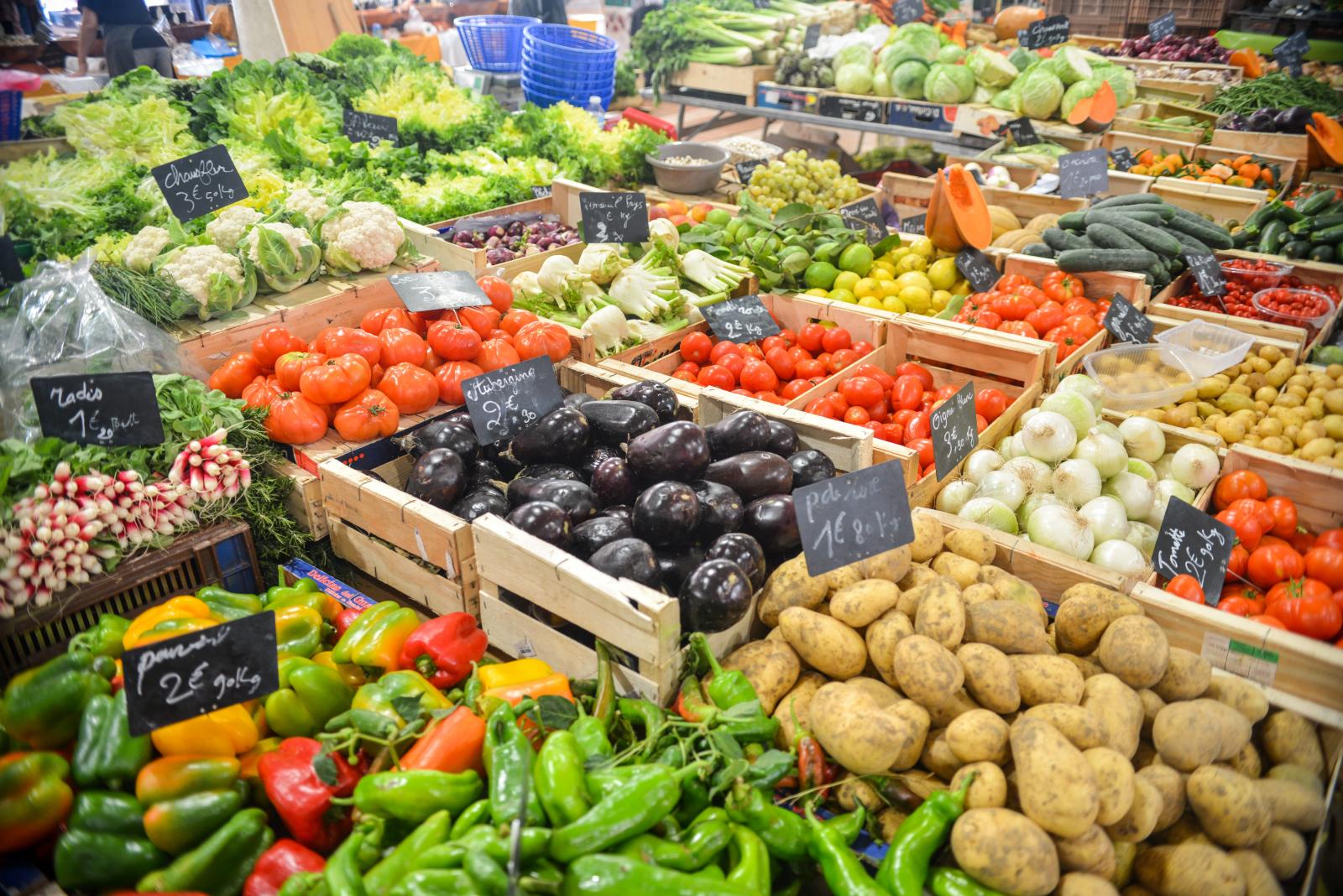National Food Strategy - first report of recommendations to Government launched
The report reflects on the information gathered through the broad consultation excercise of the last year, and focuses recommendations around poverty and trade, in light of the challenges from Coronavirus, ahead of a full report due in 2021. Read Sustain's response.

Ben Reynolds, Deputy Chief Executive of Sustain responded to the new National Food Strategy report:
“We welcome this thoughtful and comprehensive vision of what our food system looks like right now, and the attention it gives to the urgent response needed to Coronavirus. We strongly support the recommendations that the report makes to ensure better access to healthy food for those families on the lowest income, and hope that Government adopts without delay the calls to increase eligibility to free school meals, the value of Healthy Start vouchers and extension of the holiday activity and food programme.
“We agree that there is a need for much higher parliamentary scrutiny on trade deals. Parliament must have a veto on deals that let down the public. But we’re disappointed to see the recommendation for a dual tariff system as this will see products that are currently banned authorised for sale.
“There is so much more to fix in our food system, and the next report must give the attention it intends to sustainable food and farming’s key role in the economic recovery – to provide jobs in sectors as wide ranging as farming, fishing, real bread baking to providing meals on wheels, whilst also delivering healthy food that is environmentally friendly. This report rightly responds to our current COVID crisis, the next must respond to the much bigger emergency we are facing – the climate and nature emergency.”
Sustain's campaigns have issued responses on the relevant elements of the report and its recommendations.
Barbara Crowther, Children’s Food Campaign Coordinator, commented:
"Every child has the right to access healthy food. We're seeing a huge increase in numbers of children experiencing food insecurity, whilst children in the lowest income households are also disproportionately more likely to be at risk of overweight, obesity and inadequate nutrition. We've always argued that school meals should be provided for every child from households in receipt of Universal Credit, but this was rejected in 2018. We're delighted that the National Food Strategy argues the powerful case for righting this wrong to children, and we urge that this also includes all children in households with No Recourse to Public Funds experiencing similar or worse levels of food and income insecurity as those in receipt of benefits.
"We hugely welcome the strategy's recommendations to expand holiday provision across the whole of England. In 2020 just 10 projects in 17 local authorities, reaching just over 50,000 children across England, received funding support from the Department for Education. Another 52 programme proposals which would have delivered support to over 240,000 children in 71 local authorities were rejected. Children experiencing hunger during school holidays should not face a postcode lottery, so we urge the Government to adopt this recommendation and use the forthcoming Comprehensive Spending Review to make it a reality for the coming academic year."
“We welcome the recognition that there are many misleading labels on food and drink, that suggest products are healthier or suitable for children than they really are. It also highlights the powerful role that the Soft Drinks Industry Levy has played in catalysing faster, deeper reformulation of this category and removing sugar from products. We look forward to working with the National Food Strategy team to build on this strong foundation to include recommendations in the full report for further use of fiscal measures, and healthier packaging, particularly removing child-friendly characters from unhealthy produce.”
Simon Shaw, Food Poverty Programme Manager at Sustain, responded:
"We welcome the recognition that reducing food poverty means securing jobs and wages and adequate social security. Government should take action to overcome the structural drivers of food poverty. Without strategic, long-term action, real and lasting change is not possible. Part Two of the strategy should go further, be bolder, and demand what is truly needed.
"We welcome the proposed action to ensure children have access to nutritious food, such as increasing eligibility for free school meals, expanding government support for holiday food provision and improving the Healthy Start scheme, including accelerating digitisation, increasing the value of vouchers and a dedicated promotion campaign. But the strategy is missing action for groups who had disproportionate difficulty accessing food during Covid-19, including older people, disabled people, people from ethnic minorities and people with no recourse to public funds. Government should take urgent action to support these groups now. And Part Two of the strategy should set out a comprehensive plan to ensure all groups have access to nutritious food."
Vera Zakharov, Sugar Smart Campaign Coordinator says,
“Part One puts a welcome emphasis on social, community and public environments as the scene setters for our relationship with food, particularly where healthy food access is concerned. Indeed our local Sugar Smart campaigns work across local sectors and settings to ensure healthy options are the easy and desirable choice as people navigate their daily lives. However Dimbleby’s deferral to the Obesity Strategy’s groundbreaking but narrow measures on curbing unhealthy promotions in store and in home entertainment misses the important role of other spaces, such as schools, high streets and transport hubs in influencing the food we eat. We hope Part Two includes bold recommendations on Government resourcing and empowering of local areas to transform their food culture for the better, including better targeting of Sugar Levy funds for children’s health projects, licensing and restrictions on cheap unhealthy food sales, and better powers to clean up local advertising landscapes.”
Sofia Parente, Veg Cities campaign coordinators says,
"We welcome this timely report and the recommendations. The report goes into some detail on the difficulties of people on lower incomes to afford a healthy diet and how poorer children eat less fruit and vegetables compared to their more affluent peers. Expanding the School Fruit and Vegetable Scheme too all children in primary school and sourcing more high standard British produce into the scheme would level off some of these inequalities in access to fresh fruit and vegetables in children and would provide a boost to British farmers."
Ruth Westcott, Sustain's co-ordinator for the Climate and Nature Emergency, says,
"Our food system is the single biggest cause of the climate and nature emergency and the strategy rightly says that government action is needed urgently. Concrete proposals are due in stage two and we look forward to some bold policies to switch our diets to more sustainably produced, seasonal fruit and veg and less but better meat and dairy, with public sector food the perfect place to start. There are a number of actions that government can take - today - to make our food system healthier, deliver better jobs, and give British people the kind of fair, green recovery that they overwhelmingly want. I outline five in a blog here"
"One aspect which is missing is fishing: The Fisheries Bill currently going through parliament is a framework upon which other legislation is designed to sit, and the National Food Strategy is an opportunity to do just that. We could make the UK's fisheries truly world-leading and produce much more of our own seafood by setting ourselves the ambitious but completely achievable goal of all UK fisheries being demonstrably sustainable. It would open new markets for our produce and give a much needed boost to coastal communities. All is needed is the vision and resources to do it."
Sustian's submissions to the National Food Strategy call for evidence, along with those of some Sustain members can be found here. Sustain also produced an overarching vision prior to this for what it believed should be included in a National food Strategy.
The report is available here.
Published Wednesday 29 July 2020
National Food Strategy: Launched in two parts over 2020-2021, the National Food Strategy is an independent review commissioned by government to set out a vision and a plan for a better food system.





